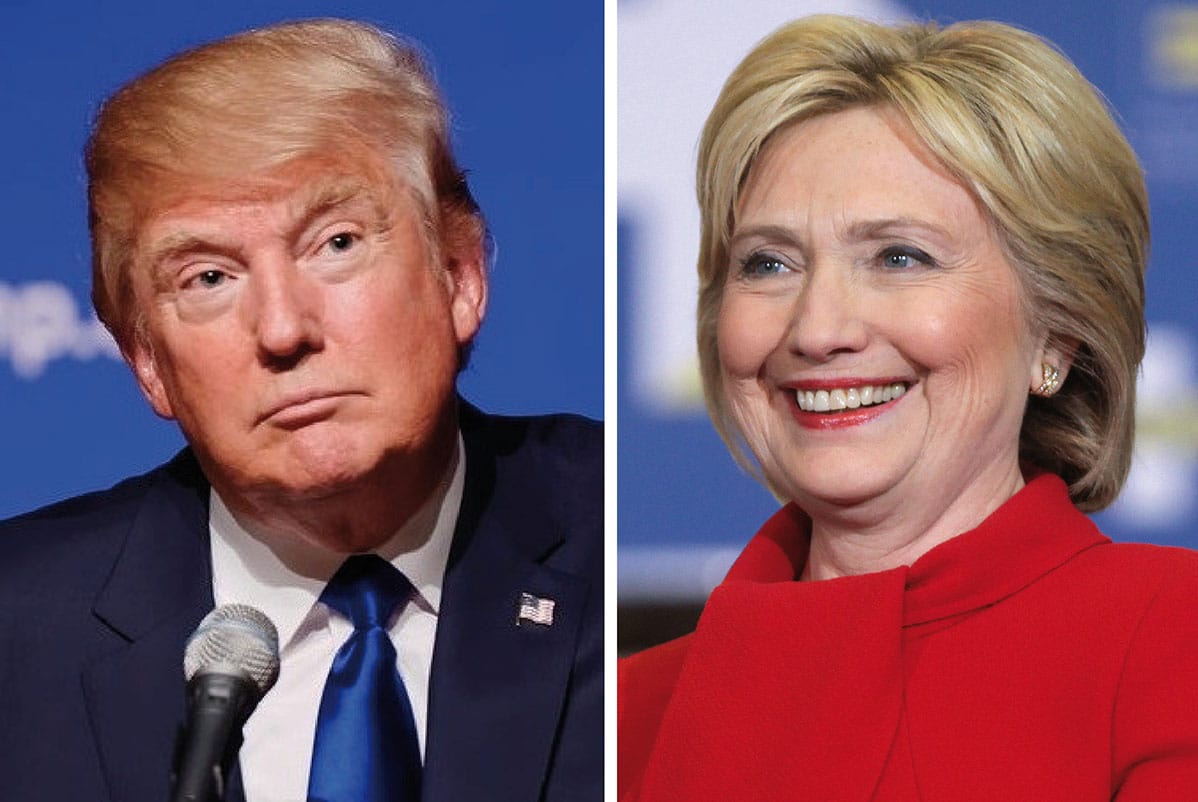Politics
Riding the Political Rapids

The public mood is bitter and resentful, as is evidenced by the growing public opposition to trade deals.
Americans are faced with two very dispiriting choices this presidential election cycle. After eight years of timid leadership by Pres. Barack Obama, who squandered a historic opportunity to reconfigure the economic and social contract after the financial crisis of 2007, the American electorate is desperate for change. Donald Trump’s tantalizing appeal comes in large part from the belief that he would be a proverbial bull in a china shop, even though he is so seemingly ill prepared. But then the know-alls haven’t done so well after all, and worse, they have rigged the system to their benefit. What do outsiders have to lose?
If only it were that simple.
Unfortunately, over the past several months, the Republican nominee has demonstrated that he is a narcissistic, bigoted, vacuous and pathological liar and a fraud. Save for the questionable possibility that he might really disrupt Washington, there does not seem a single redeeming quality about him. Far from being a successful businessman, it is increasingly clear that he is a charlatan, who has bankrupted four companies, stiffed vendors and, as the accusations in the Trump University lawsuit allege, defrauded vulnerable students. His single biggest skill is over-the-top self-promotion and virtually all of his wealth is derived from leveraging or licensing his over-hyped brand. He is a pathological liar, who exaggerates his wealth and evades taxes, which is very likely the reason he is concealing his tax returns. Over the past decade, he has cynically used a charitable foundation, which is named after him, not to channel his own personal giving, but as a vehicle to raise money from others and then used some of it to pay off personal or corporate liabilities, according to multiple media investigations.
Remarkably, none of this seems to matter to his base — roughly a third of the electorate comprised principally of less educated Whites. Not surprisingly, as he famously declared in February, “I love the poorly educated.”
Just about any Democrat — except Hillary Clinton — would have comfortably put Trump away by now. But she is a terribly flawed nominee, who perhaps any Republican — other than Trump — might as easily have trounced.
A quarter century of Republican assaults have singed her as untrustworthy — and some of her conduct and instincts (best captured in the email controversy) have served to exacerbate that perception. But her abysmal record on even this score pales before Trump’s. What is perhaps far more destructive to her candidacy is that she epitomizes the self-serving, incestuous, intertwined culture of politics, finance, and Ivy League cocktail circuits, which has rewarded her and her husband, former Pres. Bill Clinton, handsomely. As it has and will Pres. Obama.
In this year of the outsider, Clinton is the ultimate insider and there is understandable resentment and suspicion of her coziness with Wall Street and those living high off the hog of the rigged economy.
The public mood is bitter and resentful, as is evidenced by the growing public opposition to trade deals.
For decades, the United States has browbeaten other countries into opening up their economies, to its advantage. But with the rise of India, China and other emerging economies, the trade benefits are no longer as lopsided. Globalization is still immensely profitable for Wall Street, but the trickle down benefits no longer flow to those on the lowest rungs of the U.S. economic ladder — non college educated laborers, the vast majority of whom happen to be White.
Trump has appeared on the political scene just as the fault lines of both political parties have come into sharp relief.
Over the past half century, the two leading parties have engaged in duplicity with their supporters. The country club set and big business have rallied poor Whites around socially conservative hot button issues, such as abortion, family values, and racial identity. Democrats have countered by mobilizing minorities and labor. However, starting with Bill Clinton in the 1990s, Democrats have become beholden to Wall Street and private equity elites and have also benefitted by drawing into their fold upscale, urban professionals, many of whom are disenchanted by the increasingly rabid social conservatism and borderline racism of the GOP.
The ascendancy of Trump in the Republican Party and the scare that the Social Democrat Bernie Sanders threw into the Democratic Party establishment shows that the gig is finally up for both parties. As columnist David Brooks wrote recently in the New York Times, “The crucial social divide today is between those who feel the core trends of the global, information-age economy as tailwinds at their backs and those who feel them as headwinds in their face.”
Trump and Clinton are stand-ins for that divide. Whichever way the winds may turn this election cycle, tectonic political shifts are on the anvil and every demographic group will be up for grabs. The future belongs to the party that is nimbler in riding the economic rapids of insiders, who may hold the aces, versus the outsiders, who have the rest of the numbers.
